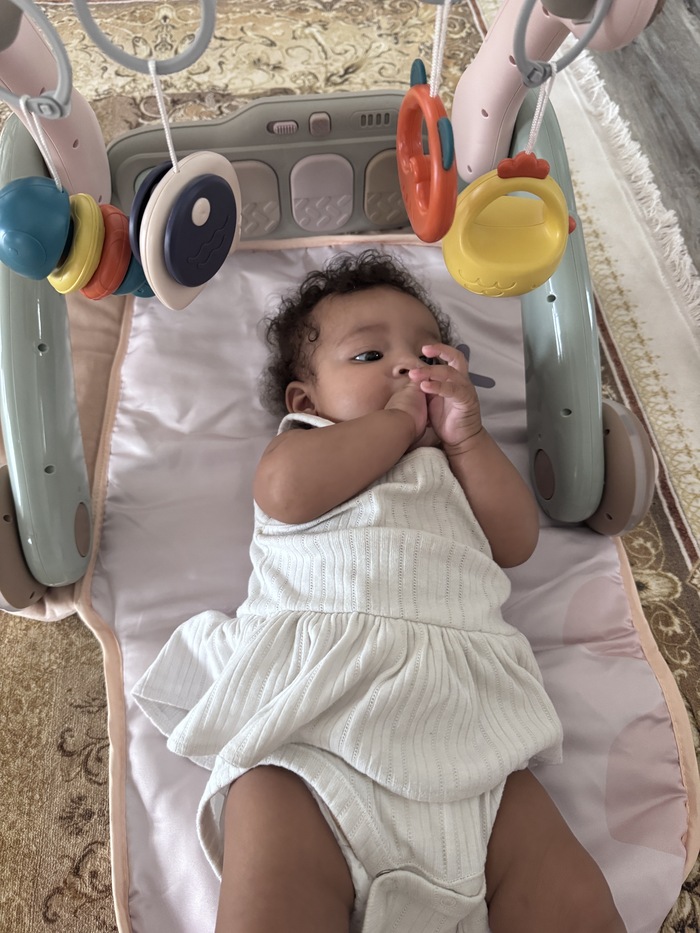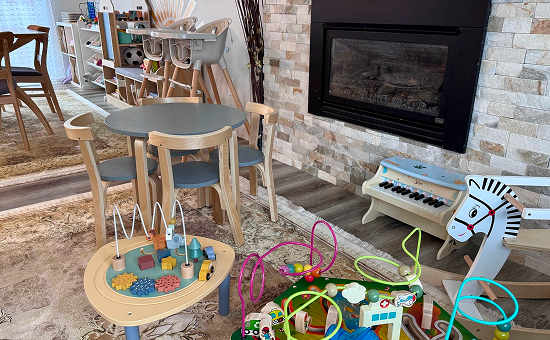Health screenings for infants and toddlers in daycare are vital for early detection of health and developmental issues, ensuring childcare wellness. These screenings, including physical, developmental, vision, hearing, and immunization checks, promote healthy growth and address concerns early. Collaborating with health professionals and daycare providers supports infant care and toddler development checks. Read more for key screening details and tips for parents.
Why Screenings Matter
Health screenings in daycare settings are crucial for ensuring the well-being of infants and toddlers. These routine checks help identify potential health or developmental issues early, allowing for timely interventions that support long-term health. In group environments like daycare, where children are exposed to more germs and social interactions, screenings play a key role in maintaining childcare wellness.
Benefits of Early Monitoring
Early health monitoring through infant health screenings and toddler development checks can catch issues before they become serious. For example, identifying a developmental delay at 18 months allows for early intervention, which can improve outcomes by up to 70%, according to the CDC. Screenings also ensure children meet growth milestones, providing peace of mind for parents and caregivers. Regular checks foster a proactive approach to daycare health, reducing the risk of untreated conditions.
Common Daycare Health Issues
Daycare settings, including home daycare, can expose children to common health concerns like ear infections, respiratory illnesses, and allergies. Developmental delays or behavioral challenges may also emerge in group environments. For instance, about 1 in 6 children in the U.S. has a developmental issue, per the American Academy of Pediatrics (AAP). Proactive screenings help address these risks, ensuring a healthy environment for infant care and preschooler health.

Types of Screenings
Health screenings for infants and toddlers in daycare cover physical, developmental, sensory, and immunization assessments. Each type ensures children thrive in childcare settings.
Physical Health Checks
Physical screenings monitor growth metrics like height, weight, and head circumference. These checks, often monthly for infants, ensure children meet age-appropriate milestones. For example, a pediatrician may track an infant’s weight gain to confirm healthy nutrition. In daycare Bothell or similar settings, providers coordinate with parents to schedule these routine exams, ensuring consistent infant care.
Developmental Screenings
Developmental screenings, such as the Ages and Stages Questionnaire (ASQ), assess milestones like speech, motor skills, and social interaction. Conducted at key ages (e.g., 9, 18, and 24 months), these checks identify delays early. For instance, a toddler struggling with language may benefit from speech therapy. Daycare staff trained in toddler development checks can flag concerns during play-based observations, supporting early health monitoring.
Vision and Hearing Tests
Vision and hearing screenings are critical for infant health screenings. Tests like otoacoustic emissions for hearing or red reflex exams for vision can detect issues as early as 6 months. About 2–3% of children have hearing loss, per the CDC, which can affect speech development if untreated. Daycare providers ensure these tests are part of routine childcare wellness protocols, especially for toddlers transitioning to preschooler health checks.
Immunization Tracking
Immunizations protect children from diseases like measles and whooping cough, which can spread in daycare settings. Providers track vaccination schedules, ensuring compliance with AAP guidelines (e.g., DTaP vaccine by 18 months). In child care Bothell, for example, daycare staff maintain records to confirm all children are up-to-date, reducing health risks in group environments.
Working with Health Professionals
Collaboration with health professionals ensures screenings are effective and tailored to each child’s needs. Parents and daycare providers play a key role in this partnership.
Choosing Providers
Select board-certified pediatricians or specialists with experience in infant care and toddler development checks. Verify credentials through organizations like the AAP or local health boards. For daycare health, choose providers familiar with group childcare settings to address common concerns like infectious diseases.
Communication Tips
Open communication between parents, daycare staff, and doctors is essential. Parents should share screening results with daycare providers to ensure consistent care. For example, if a hearing test reveals an issue, inform the daycare to monitor the child’s interactions. Regular meetings or updates via health logs strengthen childcare wellness efforts.
Preschooler Screening Adjustments
As children transition to preschooler health checks, screenings focus on advanced skills like speech clarity and social behavior. For example, a 4-year-old may undergo a speech articulation test. Daycare providers adapt screenings to include school-readiness assessments, ensuring children are prepared for kindergarten while maintaining early health monitoring.

Childcare Wellness Practices
Creating a healthy daycare environment and tracking health data are critical for effective screenings and overall well-being.
Safe Daycare Environment
A clean, safe daycare reduces health risks. Regular handwashing, sanitized toys, and proper ventilation lower the spread of infections. For example, daycares in Bothell often follow strict hygiene protocols to prevent outbreaks of illnesses like RSV. Staff training in first aid and health observation enhances daycare health standards.
Tracking Health Data
Accurate documentation is key to childcare wellness. Daycare providers use digital tools or health logs to record screening results, vaccinations, and health incidents. For instance, a home daycare may track a toddler’s growth chart to share with parents. Consistent records ensure early detection of issues and compliance with health regulations.
Parental Role
Parents are vital advocates for their child’s health in daycare settings, ensuring screenings meet their needs.
Questions for Providers
Ask daycare providers key questions to verify health protocols:
- How often are infant health screenings conducted?
- What developmental checks are used for toddlers?
- How are immunization records verified?
These questions ensure providers prioritize daycare health and align with your expectations in child care Bothell or similar areas.
Advocating for Your Child
Stay informed about screening schedules and results. If a concern arises, like a missed milestone, request additional assessments or specialist referrals. For example, if a toddler shows delayed motor skills, advocate for a physical therapy evaluation. Engaged parents strengthen childcare wellness by ensuring their child’s needs are met.
Conclusion: Kidoheaven’s Role
Health screenings for infants, toddlers, and preschoolers in daycare are critical for early health monitoring and childcare wellness. By prioritizing physical, developmental, and sensory checks, parents and providers ensure children thrive in a safe environment. Collaborating with health professionals and staying proactive as parents strengthens these efforts. For trusted daycare Bothell that prioritize health and development, explore Kidoheaven. Visit Kidoheaven to learn how we support daycare health and wellness for your child.
Why KidoHeaven Stands Out
✅ Licensed in Washington State
✅ Aligned with Early Achievers standards
✅ Working Connections subsidy accepted
✅ Daily updates via Brightwheel
✅ Located in Bothell, serving Mill Creek, Lynnwood & nearby areas
✅ Nutritious snacks, safe outdoor space, & positive mealtime routines
📞 Call 206-734-2040 to schedule a tour
🌐 Enroll now
Follow Our Mealtime Moments
Stay updated with more beautiful outdoor meals and daily learning routines on:
Instagram | Facebook | Nextdoor | Yelp | Winnie | YouTube | Upwards
FAQ
1. What is positive guidance for young children?
Positive guidance teaches kids what to do instead of just stopping bad behavior, helping them build empathy and self-control.
2. How can parents use these strategies at home?
Start with one strategy, like redirection, during playtime or bedtime (e.g., “Let’s use this toy instead!”).
3. Are these strategies effective for all preschool ages?
Yes, they work for ages 2–5, with simpler methods like redirection for younger kids.
4. How do these strategies help in preschool settings?
They create calmer classrooms, reduce conflicts, and build trust between kids and adults.



